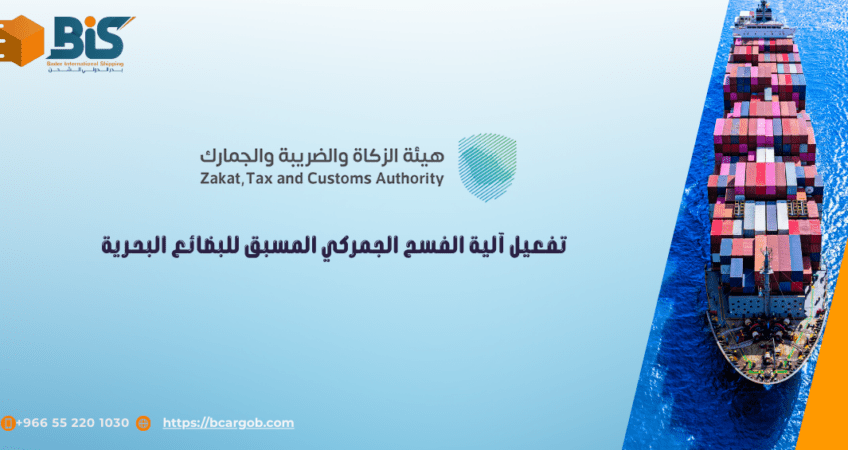Saudi Arabia codifies procedures for importing maritime goods: Pre-arrival customs declarations are required
New measures announced by the Saudi Zakat, Tax and Customs Authority signal a significant shift in the management of maritime cargo movement, aimed at enhancing transparency, speeding up customs clearance, and reducing congestion at ports.
The Zakat, Tax and Customs Authority intends to implement new regulations that oblige importers and shipping agents to submit customs shipping data in advance, before ships arrive at Saudi ports. This comes in the context of a regulatory project that is currently open for public consultation via the Istiqaa platform, and is expected to enter into force 30 days after its official publication.
According to the draft regulations, the Manifest and Cargo Declaration must be submitted on the Authority’s online platform at specific time intervals:
- 72 hours before the ship arrives at distant ports.
- At least 24 hours for nearby ports.
- For short flights (less than 24 hours), it is allowed to apply anytime before arrival.
The regulations hold shipping agents responsible for entering accurate information, including ship data, cargo types, weights, number of packages, shipper and receiver data, and the date and time of loading. Importers – or their authorized representatives – are required to complete the customs declaration upon receipt of the Manifest Notice from the maritime agent, including details of the shipment, value, bill of lading number, and commercial data.
New clearance mechanism
The regulations give the authority the power to automatically clear consignments immediately upon arrival, provided the data provided matches. Customs duties and import restrictions can be met before or after the arrival of the goods.
>On the other hand, the bill stipulates fines of up to 1,000 riyals for non-compliance, with the possibility of dropping the penalty if there are compelling reasons.
Organizational context
The controls are part of a broader package of reforms to improve customs performance, and are in line with Saudi Arabia’s commitments in the Trade Facilitation Agreement, as well as the World Customs Organization (WCO) SAFE standards. It is also part of the authority’s efforts to expand the application of the “two-hour clearance” initiative and the receipt of applications from the country of export.
These measures aim to reduce congestion, speed up handling procedures, and control security risks before cargo enters the country, thereby reducing costs and improving the efficiency of the supply chain at the Kingdom’s seaports.
Objectives of the decision
-
Promote proactive control of shipments.
-
Reduce congestion at ports.
-
Speed up handling procedures.
-
Reduce costs and improve supply chain efficiency.
Motives for the decision
-
Realizing the Kingdom’s commitments in the Trade Facilitation Agreement.
-
Supporting the “two-hour clearance” initiative.
-
Harmonization of international customs standards (SAFE Framework).
Expected impact on the sector
| Side | Impact |
|---|---|
| Supply chain | Improve efficiency and reduce logistics costs |
| Border security | Strengthening proactive cargo control |
| Companies | Increased pre-commitment to systems, with initial adaptation challenges |
| Navigational agents | Greater responsibilities and a pivotal role in data accuracy |
Conclusion
These regulations are a strategic step in Saudi Arabia’s path towards developing its logistics environment and enhancing its global trade competitiveness.
While the next phase may require more adaptation and coordination from supply chain players, the expected results in terms of speeding up procedures, reducing costs, and enhancing port security make these measures a real investment in the future of the Kingdom’s maritime trade.







